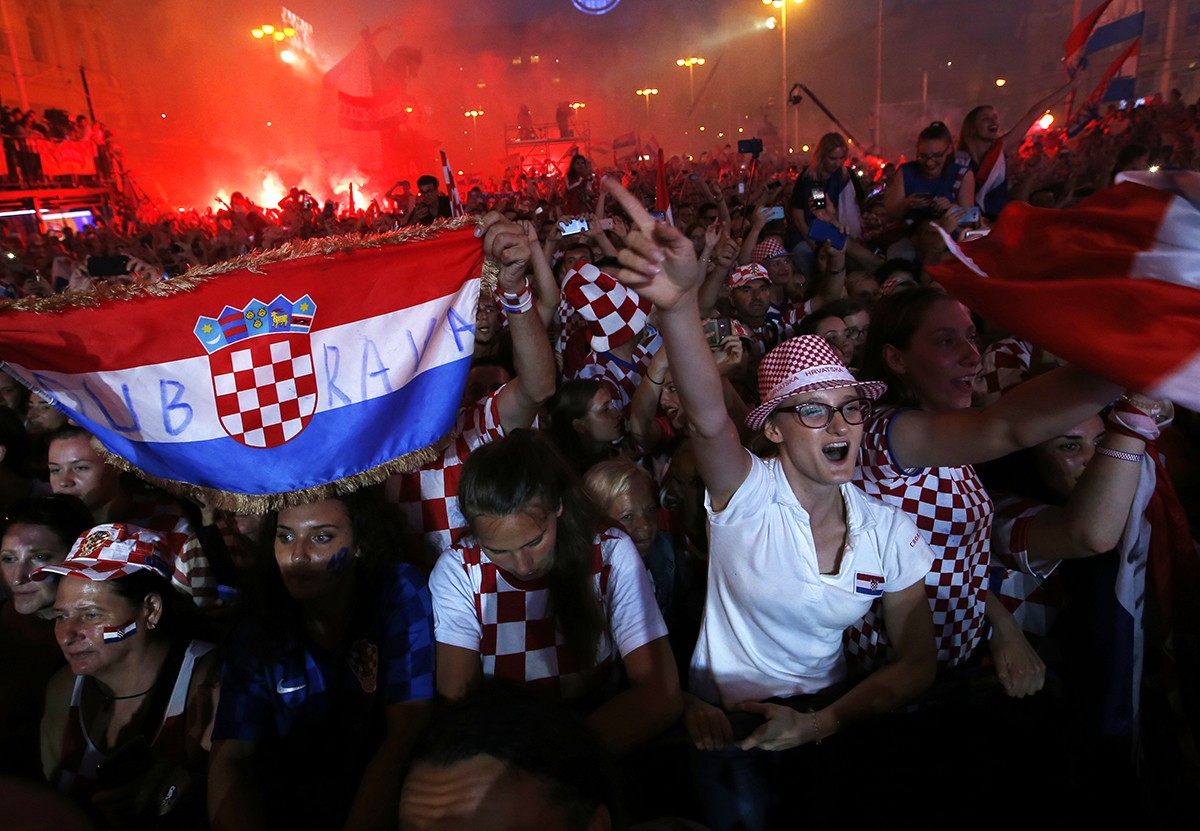MORGANTOWN — From the moment I set foot on Croatian soil, I knew the country was something special.
It was October of 2016, and I was spending the fall semester of my senior year of college studying in Europe. While the Renaissance style and flair of Florence wooed me, and the sheer size and culture of London elated me, few places struck me like the Balkan peninsula in southeastern Europe.
I’ll never forget the six-bed compartment the size of moderate closet on the rickety night train from Zagreb to Split, or waking up the next morning to the view of the sparkling Adriatic. Memories of drinking whiskey and Slovenian Cockta on the beach and wandering the ruins of Diocletian’s Palace hold a dear spot in my heart.
I fell in love with Croatia.
Fast forward just under two years, and the Croatian national soccer team was making big-time moves on the pitch. In a World Cup that saw many favorites and global powerhouses fall to the wayside early, the Croats proved one of the toughest foes of the tourney. The team brought together a young nation as it attempted to defy the odds on a run to the final.
As the dust settled, the Croats took a tough loss to France — which, coincidentally, was the squad that ousted the Croats during their semifinal run 20 years earlier — and finished the campaign as the Cup runners-up. Despite the goals scored by either squad in that final game, though, the Croatians proved themselves winners.
Under the guidance of Josip Tito, the country of Yugoslavia — made up of modern-day nations Serbia, Bosnia and Herzegovina, Slovenia, Kosovo, Croatia, Montenegro, and Macedonia — proved one of the most well-to-do, economically stable communist regimes of the 1900s, with lower unemployment, higher standards of living and less-restricted travel than Eastern European counterparts.
The Balkan peninsula, however, is a historical powder keg, and in the 1990s, ethnic pride combined with rising political tensions and a declining economy to overwhelm the desire for a united South Slavic nation.
The result was a bloody civil war across the Balkans — an international crisis that brought ethnic cleansing and war crimes front and center. The Croats declared independence from Yugoslavia in 1991, and after four years of fighting, won their war of succession. The new nation was war-torn, economically troubled and filled with a sense of national pride.
The Croatian national team was accepted into the Union of European Football Associations (UEFA) in 1993 — too late for to qualify for the 1994 World Cup. The Croats would spend the next few years building a competitive squad on the backs of young men who won an under-20 world championship with Yugoslavia. They took the qualifying campaign for Euro 96 by storm, finishing first in their group and advancing to the quarterfinals. They went on to a semifinal run in the 1998 World Cup — climbing from 125th to third in the FIFA world rankings in just five years.
Fast forward 20 years, one more UEFA quarterfinal appearance, and zero trips beyond group play in the Cup, and Croatia found its second golden generation on the back of captain Luka Modric. The Croats proceeded as the Cinderella story of the 2018 Cup, making an unprecedented run to the final.
While the loss in that match will sting for a long time, Croatia still emerges from 2018 as the real winner. The runner-up finish earned $28 million in prize money for the Croatian national soccer organization — money that will be poured into development of youth soccer in the nation and better resources for the national team. Imagine how far a check that large will go.
In addition, the exposure the Croatian squad and the nation as a whole received during the run can’t be discounted. To an entire generation of Croats, the national team are heroes — Modric is the equivalent of Lebron James, Tom Brady or Derek Jeter in his country right now.
Over 200,000 fans filled the main square of Zagreb to welcome home their squad — 5 percent of the small nation’s entire population. Even with the loss in the final, the Croatian team succeeded in building national pride for a young country eager to grow.
They influenced an entire generation of soccer youth in their homeland, showing them what’s possible for Croats who put in the work, time and sacrifice. They brought home an impressive eight-figure check to further invest and build the nation’s program, and proved the story of one of the most unusual Cups yet.
All in all, it’d be hard to describe this team as anything but winners, if we’re being realistic.




